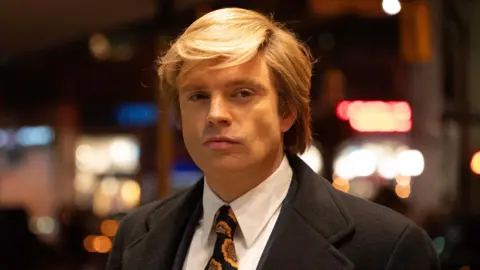 Studio Canal
Studio CanalThe star of a controversial new film about Donald Trump has said the former president “should be grateful” that it provides a “complex, three-dimensional take” on his life.
US actor Sebastian Stan portrays Trump in The Apprentice, which focuses on Trump’s younger years as a real estate tycoon in New York.
The former president has threatened to take legal action against producers, describing the film as “fake and classless” and saying he hoped it would “bomb” at the box office.
The film struggled to find a distributor in the US and its director described the process of making and releasing it as “the most challenging thing I’ve ever done”.
The Apprentice is set in the 1970s and 80s, when Trump was beginning to make his name as a businessman in New York.
It focuses on his relationship with lawyer and mentor Roy Cohn (played by Succession’s Jeremy Strong), who instilled certain values in Trump such as never admitting defeat.
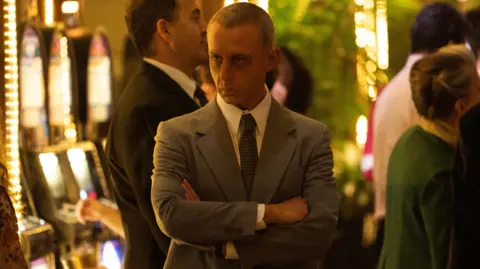 Studio Canal
Studio CanalSpeaking to the BBC’s Lizo Mzimba, Ali Abbasi said making and releasing the film was “by far the most challenging thing I’ve ever done” and acknowledged the difficulties of finding a distributor following the film’s premiere in May.
“When we were at [film festival] Cannes and we got a standing ovation and everyone was so happy and flattering, I was thinking there’s going to be a bidding war, do I want to go with Warner or Netflix, who do I want to pick?”
But in contrast to the director’s expectations, Abbasi said he then found “it was extremely difficult for us to get a distributor” – likely due in part to Trump’s threat to sue.
The Apprentice was eventually released in the US last week, but it has struggled at the box office there so far.
It received its British premiere at the London Film Festival on Tuesday evening ahead of its UK release on Friday.
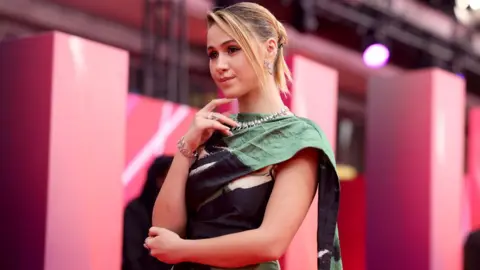 Getty Images
Getty ImagesMore from the London Film Festival:
Abassi confirmed he was keen to make sure the movie is released before the US election on 5 November, where Trump will face Kamala Harris, so it can be part of the conversation.
“The choices are either to release this potentially in a Trump presidency, or the aftermath of the election whichever way it [goes], or to do it now,” Abbasi said.
“And I think intellectually and as an artist it’s much more exciting [to release it now].
“I don’t think anyone has ever done a movie about a person who is running for office as they’re doing it, and have this interaction, it’s quite unique, honestly, and why would I pass on this opportunity?”
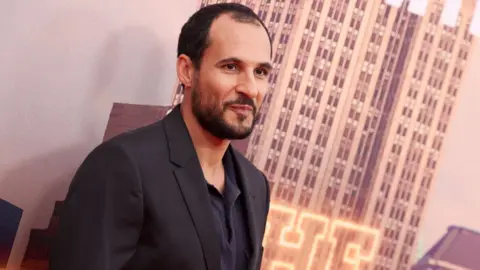 Getty Images
Getty ImagesHe added: “Does that mean we want to affect or change the outcome of the US election? I mean, I wish I had those powers!”
However, Strong suggested the movie could have an impact on some voters.
“In some small way, I think it could move the needle on how people feel [about] or perceive him, but the film is not a political act, it’s a story,” he said.
The film has received mixed reviews and there has been debate about whether it could become part of the Oscars race.
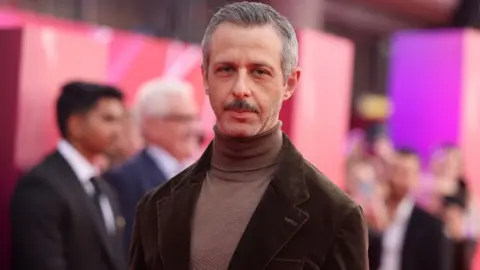 Getty Images
Getty ImagesThe election’s outcome could be a key factor in whether or not it is nominated, Vanity Fair’s Richard Lawson has noted.
“If Trump wins the election, I don’t think [awards voters] will want to have anything to do with this movie,” Lawson said on the Little Gold Men podcast.
“There would have to be a Harris win for people to be like, ‘OK, we defeated the evil again, we can now go back and reconsider his younger life from a safer remove.'”
If the movie does make it into the Oscars race, it could see Strong in direct competition with his former Succession co-star Kieran Culkin in the supporting actor category.
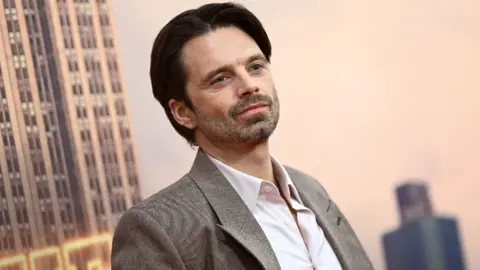 Getty Images
Getty ImagesMarvel star Stan avoids portraying Trump as a caricature villain in the film, or in the exaggerated, comedic way Trump is often presented by impressionists.
Instead, The Apprentice acts as a more serious character study of how Trump’s personality was formed by Cohn.
The fact that Trump is played without the usual voice, gestures and characteristics actors often use makes his gradual evolution over the course of two hours much more effective.
“Some may want The Apprentice to go further,” said Katie Walsh of the LA Times in her review. “It does humanise Trump.
“But it also presents a plainly obvious depiction of how a man can turn into a monster with the right personality, background and guidance.”
By the end of the film, Cohn’s influence on Trump can be seen clearly. For younger audience members who have only come to know Trump in the last decade, the film may prove enlightening.
Stan reflected: “They [Trump and Cohn] are very complex individuals, and that’s what it’s like in life, no-one is morally completely on the right side or perfect in any way, everyone has flaws, and there are some redeeming qualities as well to them.”
 Studio Canal
Studio CanalStrong told BBC News: “The movie is about how Trump was made, in a way, how he became who he is today, his moral, philosophical, political framework, and a lot of that originates in Roy Cohn, so in that sense, it’s an origin story.
“We live in this hyper-polarised world where we see things in terms of heroes and villains, but the world isn’t really like that.
“And neither of us were interested in simply vilifying or demonising these people. Your job as an actor is to leave your judgement at the door.”
Stan concluded: “I think [Trump] should be grateful, to be honest. We have pretty much handed him, I think, a very complex, three-dimensional take on his life, and I can’t recall anybody else doing that.”
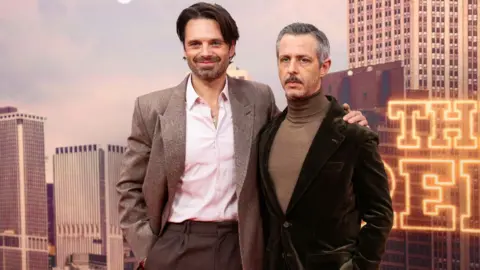 Reuters
ReutersSexual assault scene
That isn’t to say the portrayal of Trump is sympathetic, however. Quite the opposite. Stan’s Trump treats people increasingly badly and in one particularly controversial scene, he is seen raping his then-wife Ivana.
This allegation has a complicated background – Ivana Trump did accuse Trump of rape in a court deposition in 1990 when they were divorcing, but she later distanced herself from the claim.
In 2015, Ivana described one sexual encounter in which she said “the love and tenderness” Trump usually displayed was absent, leaving her feeling “violated”. She continued: “I referred to this as a ‘rape,’ but I do not want my words to be interpreted in a literal or criminal sense.”
She later dedicated her 2017 memoir to Trump, describing him as “the kids’ father and my dear friend”. She died in 2022.
Trump denied sexual assault – his lawyer saying the rape “never happened”, and Trump’s team threatened to sue producers.
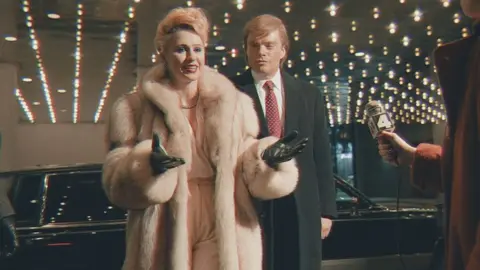 Studio Canal
Studio CanalEarlier this week, Trump said in a statement: “My former wife, Ivana, was a kind and wonderful person, and I had a great relationship with her until the day she died.”
He added: “So sad that human scum, like the people involved in this hopefully unsuccessful [movie], are allowed to say and do whatever they want in order to hurt a political movement, which is far bigger than any of us.”
Trump’s threat to sue deterred some buyers at Cannes, but Briarcliff Entertainment eventually picked up the film for distribution in the US and Canada.
Asked about the sexual assault scene, Abbasi said: “My approach is this is of importance because it’s a rupture, a hugely important character point, the relationship between Donald and Ivana, and really it’s the tragedy that’s important, not the controversy.”
Asked about researching Ivana Trump, Bakalova said: “It’s been good to see a woman ahead of her time, she wanted to be hand-in-hand in the business with him. Yes, taking care of the kids as well… but she’d been a businesswoman, and I think she’s been influential.”





